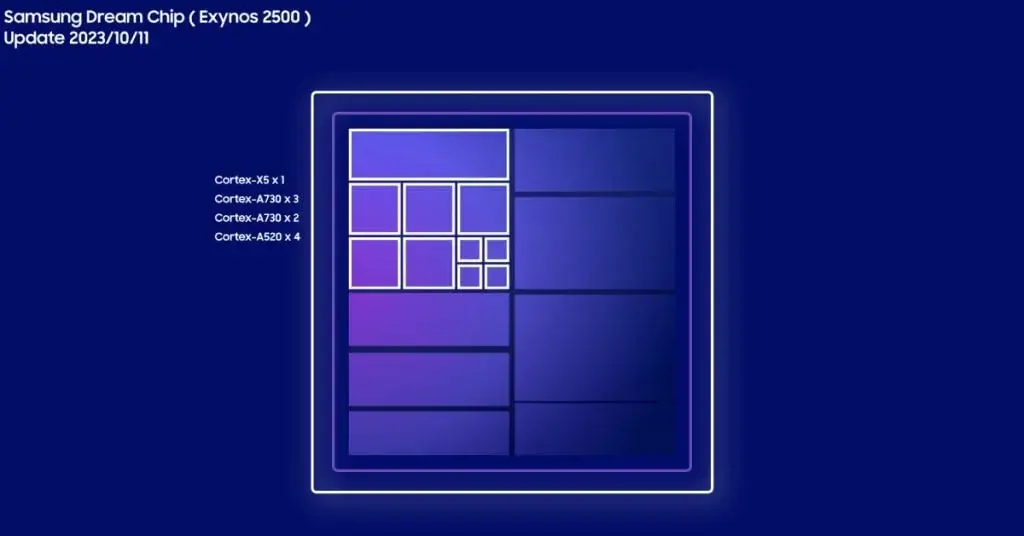The Exynos 2500 processor, which is expected to power the upcoming Galaxy S25 series, has been a topic of interest among tech enthusiasts. Many were hoping that it would be a game-changer, following the success of the Exynos 2400 in the Galaxy S24+. However, a recent leak by X/Twitter insider OreXDA has revealed some surprising details about the Exynos 2500’s performance.
A Step Back in Performance
According to the leak, while the Exynos 2500’s main core may be slightly faster than its predecessor, the performance of other cores seems to be taking a step back. This suggests that Samsung might be prioritizing efficiency and battery life over raw power for the Galaxy S25.
Specifically, the leak suggests that the Exynos 2500’s top Cortex-X5 core is expected to run at speeds between 3.2 GHz and 3.3 GHz. Additionally, three of its Cortex-A730 cores are likely to operate between 2.5 GHz and 2.3 GHz. These speeds are notably lower than the Cortex-A720 cores found in the Exynos 2400.
Unique CPU Configuration
Earlier leaks had suggested that the Exynos 2500 would feature a unique 1+3+2+4 CPU configuration. This means that the remaining two Cortex-A730 cores will have even lower speeds than the first three. The performance of the four Cortex-A530 cores remains unknown at this point.
Prioritizing Efficiency
While these lower speeds may come as a surprise to some, it could be a strategic move by Samsung. The Exynos 2500 is built on Samsung’s new 3GAP process, which is expected to be more efficient than the competition’s 3nm FinFET technology. This could result in longer battery life and cooler operation for the Galaxy S25, even if it doesn’t dominate in benchmark tests.
User Experience Matters
Although these leaks are not confirmed and the final specifications could change, they do suggest that Samsung is prioritizing the overall user experience over chasing the highest numbers on paper. This approach could be refreshing for smartphone users who value factors such as battery life and device temperature.
In conclusion, the leaked details about the Exynos 2500 processor indicate that Samsung may be focusing on efficiency and battery life for the Galaxy S25 series. While the performance of some cores may be lower compared to its predecessor, the use of Samsung’s new 3GAP process could provide benefits in terms of longer battery life and cooler operation. Ultimately, it seems that Samsung is taking a user-centric approach, prioritizing what really matters to smartphone users.


Leave a Reply